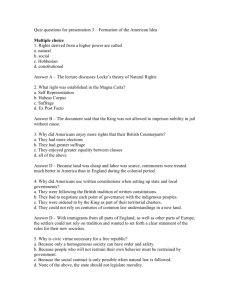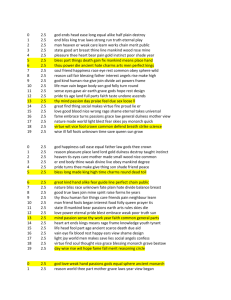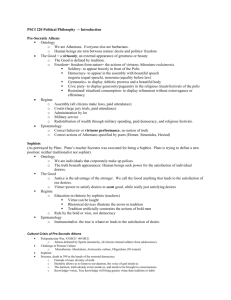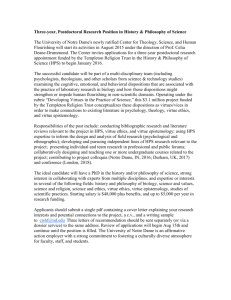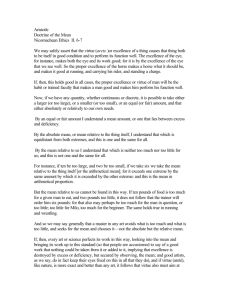On Virtue* By Phillis Wheatley *showing strong moral
advertisement
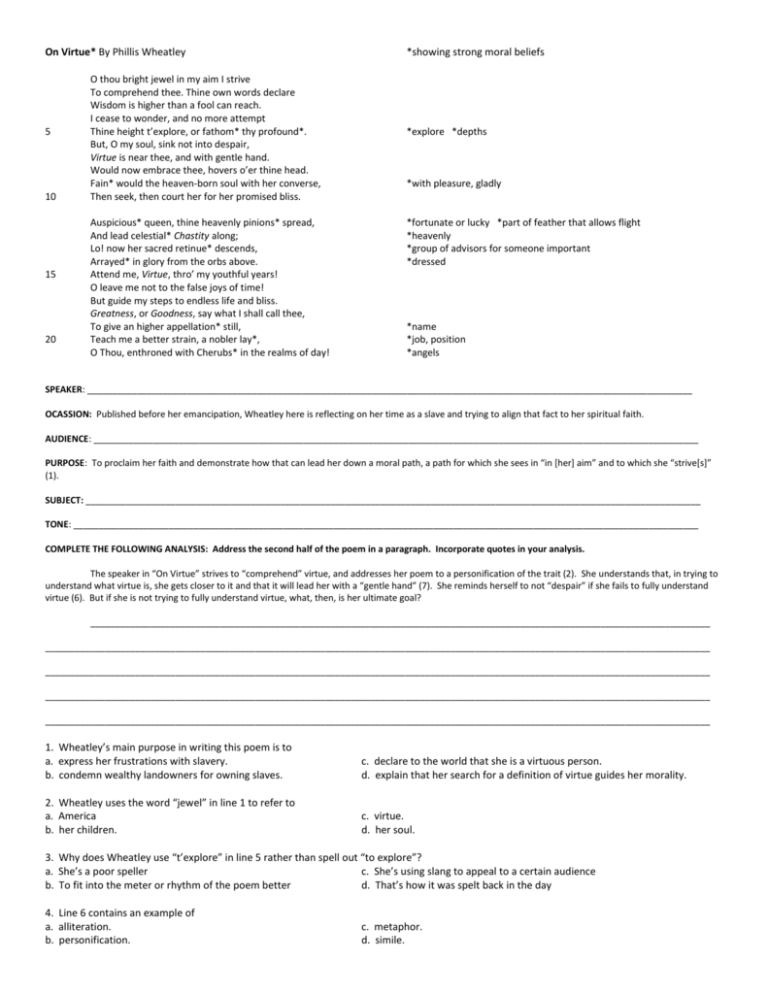
On Virtue* By Phillis Wheatley 5 10 15 20 O thou bright jewel in my aim I strive To comprehend thee. Thine own words declare Wisdom is higher than a fool can reach. I cease to wonder, and no more attempt Thine height t’explore, or fathom* thy profound*. But, O my soul, sink not into despair, Virtue is near thee, and with gentle hand. Would now embrace thee, hovers o’er thine head. Fain* would the heaven-born soul with her converse, Then seek, then court her for her promised bliss. Auspicious* queen, thine heavenly pinions* spread, And lead celestial* Chastity along; Lo! now her sacred retinue* descends, Arrayed* in glory from the orbs above. Attend me, Virtue, thro’ my youthful years! O leave me not to the false joys of time! But guide my steps to endless life and bliss. Greatness, or Goodness, say what I shall call thee, To give an higher appellation* still, Teach me a better strain, a nobler lay*, O Thou, enthroned with Cherubs* in the realms of day! *showing strong moral beliefs *explore *depths *with pleasure, gladly *fortunate or lucky *part of feather that allows flight *heavenly *group of advisors for someone important *dressed *name *job, position *angels SPEAKER: _________________________________________________________________________________________________________________________ OCASSION: Published before her emancipation, Wheatley here is reflecting on her time as a slave and trying to align that fact to her spiritual faith. AUDIENCE: _________________________________________________________________________________________________________________________ PURPOSE: To proclaim her faith and demonstrate how that can lead her down a moral path, a path for which she sees in “in [her] aim” and to which she “strive[s]” (1). SUBJECT: ___________________________________________________________________________________________________________________________ TONE: _____________________________________________________________________________________________________________________________ COMPLETE THE FOLLOWING ANALYSIS: Address the second half of the poem in a paragraph. Incorporate quotes in your analysis. The speaker in “On Virtue” strives to “comprehend” virtue, and addresses her poem to a personification of the trait (2). She understands that, in trying to understand what virtue is, she gets closer to it and that it will lead her with a “gentle hand” (7). She reminds herself to not “despair” if she fails to fully understand virtue (6). But if she is not trying to fully understand virtue, what, then, is her ultimate goal? ____________________________________________________________________________________________________________________________ _____________________________________________________________________________________________________________________________________ _____________________________________________________________________________________________________________________________________ _____________________________________________________________________________________________________________________________________ _____________________________________________________________________________________________________________________________________ 1. Wheatley’s main purpose in writing this poem is to a. express her frustrations with slavery. b. condemn wealthy landowners for owning slaves. c. declare to the world that she is a virtuous person. d. explain that her search for a definition of virtue guides her morality. 2. Wheatley uses the word “jewel” in line 1 to refer to a. America b. her children. c. virtue. d. her soul. 3. Why does Wheatley use “t’explore” in line 5 rather than spell out “to explore”? a. She’s a poor speller c. She’s using slang to appeal to a certain audience b. To fit into the meter or rhythm of the poem better d. That’s how it was spelt back in the day 4. Line 6 contains an example of a. alliteration. b. personification. c. metaphor. d. simile.




